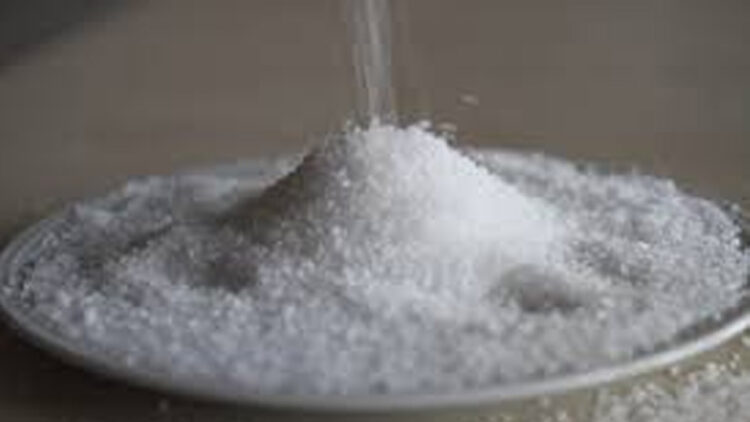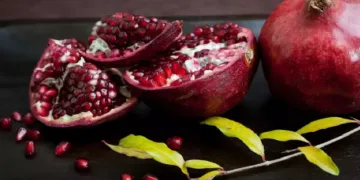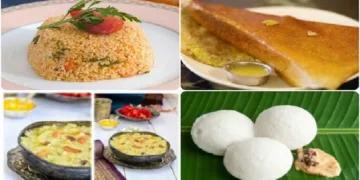പവിത്ര കാര്ത്തിക്ക്
നമ്മുടെ നാവിന് അറിയാന് കഴിയുന്ന ആറ് രുചികളില് ഒന്നാണ് ഉപ്പ്. ഇത് ഭക്ഷണത്തിന് സ്വാദും രുചിയും മാത്രമല്ല, ഒരു പ്രിസര്വേറ്റീവായി പ്രവര്ത്തിക്കുന്നു. ഒരു നുള്ള് ഉപ്പ് ഒരു പ്ലേറ്റ് ഭക്ഷണം രുചികരമാക്കും, അത് നമ്മുടെ ദാഹനത്തിന് സഹായിക്കുകയും കൂടുതല് ഭക്ഷണത്തിനായി കൊതിപ്പിക്കുകയും ചെയ്യും. ഉപ്പ് കൂടുതലുള്ള ഭക്ഷണം തയ്യാറാക്കുമ്പോള് ഭക്ഷ്യ വ്യവസായങ്ങള് ഉപയോഗിക്കുന്ന ആശയവും ഇതാണ് (വിലകുറഞ്ഞ ചേരുവകള് + ദൈര്ഘ്യമേറിയ ഷെല്ഫ് ലൈഫ്= കൂടുതല് ലാഭം).
ഉപ്പിന്റെ അമിതമായ ഉപഭോഗം രക്തസമ്മര്ദ്ദം, ഹൃദ്രോഗം എന്നിവയ്ക്ക് മാത്രമല്ല, ഇന്സുലിന് പ്രതിരോധം, പ്രമേഹം, സ്ട്രോക്ക്, പൊണ്ണത്തടി എന്നിവയ്ക്കും കാരണമാകുന്നു. അമിതമായി ഉപ്പ് ഉപയോഗിക്കുന്ന കുട്ടികളിലും യുവാക്കളിലും ഈ ഫലങ്ങള് വളരെ ശ്രദ്ധേയമാണ്, കാരണം അവരുടെ രക്തസമ്മര്ദ്ദം വര്ദ്ധിക്കുകയും ജീവിതത്തിലുടനീളം ഉയര്ന്നു നില്ക്കുകയും ചെയ്യുന്നു. ഇത് ശരീരഭാരം, ഹൃദയ രോഗങ്ങള്, പൊണ്ണത്തടി എന്നിവയിലേക്ക് നയിക്കുന്നു. ഉപ്പിട്ട ഭക്ഷണങ്ങള് (ജങ്ക് ഫുഡ്) കഴിക്കുന്നത് കൂടുതലും ശീതളപാനീയങ്ങളോ പഞ്ചസാര മധുരമുള്ള പാനീയങ്ങളായ ജ്യൂസ്, കോളകള് മുതലായവയുടെ ഉപയോഗത്തോടൊപ്പമാണ്, ഇത് ഉപ്പ് കഴിക്കുന്നതിന്റെ ഫലങ്ങള് വര്ദ്ധിപ്പിക്കും.
പൊണ്ണത്തടിയും കുട്ടിക്കാലത്തെ പൊണ്ണത്തടിയും ഒരു പകര്ച്ചവ്യാധി പോലെ പടരുന്നു. ഇത് ഒരു രാജ്യത്തിന്റെ സമ്പദ്വ്യവസ്ഥയിലും, ആരോഗ്യ സംരക്ഷണത്തിലും, ഭാവിയില് ദോഷകരമായ ഫലങ്ങളും ഉണ്ടാക്കും. രക്താതിമര്ദ്ദമോ ഹൃദയ സംബന്ധമായ അസുഖങ്ങളോ ഉള്ളവര്ക്ക് ഉപ്പ് കുറയ്ക്കാന് ഡോക്ടര്മാര് നിര്ദ്ദേശിക്കുന്നത് നിങ്ങള് കേട്ടിരിക്കാം. എന്നിരുന്നാലും, ഉപ്പ് കഴിക്കുന്നത് കുറയ്ക്കണമെന്ന് ഡോക്ടര്മാര് ഉപദേശിക്കുമ്പോള് മിക്ക ആളുകളും അച്ചാറുകളും, പാചകം ചെയ്യുമ്പോള് ഉള്ള ഉപ്പിന്റെ ഉപയോഗവും കുറയ്ക്കുന്നു. ഇത് നല്ലതാണെങ്കിലും, ഉപ്പ് കൂടുതലുള്ള മറ്റ് പല ഭക്ഷണങ്ങളും നമുക്കറിയില്ല. ചിപ്സ്, ഫ്രഞ്ച് െ്രെഫകള്, ബിസ്ക്കറ്റ്, കുക്കികള്, ചീസ്, പോപ്കോണ്, ബ്രെഡ്, സ്ട്രീറ്റ് ഫുഡ്, കൂടാതെ സൂപ്പ്, ഉപ്പിട്ട നട്സ്, പാലില് രുചി കൂട്ടുന്ന പൊടികള്, കോണ് ഫ്ളേക്സ്, കെച്ചപ്പുകള് തുടങ്ങിയ പ്രഭാതഭക്ഷണം പോലെയുള്ള അള്ട്രാ പ്രോസസ് ചെയ്ത ഭക്ഷണങ്ങള്. സോസേജ്, സംസ്കരിച്ച മാംസം, സോസുകളും ഡ്രെസ്സിംഗുകളും, ഡിപ്സ്, ഫാസ്റ്റ് ഫുഡുകള്/ബര്ഗറുകളും പിസ്സകളും പോലുള്ള ജങ്ക് ഫുഡുകള്.
സമ്പൂര്ണ ആരോഗ്യത്തിന് മനുഷ്യര്ക്ക് പ്രതിദിനം ഒരു ടീസ്പൂണ് ഉപ്പ് മാത്രമേ ആവശ്യമുള്ളൂ. ലോകമെമ്പാടും, ഉപ്പിന്റെ ഉപഭോഗം വളരെ കൂടുതലാണ്. ഇത് നിരവധി ജീവിതശൈലി രോഗങ്ങളുമായി ബന്ധപ്പെട്ടിരിക്കുന്നു. ഇതിനാല് ലോകാരോഗ്യ സംഘടന 2025 ഓടെ ഉപ്പ് കഴിക്കുന്നത് 30% കുറയ്ക്കാന് ശുപാര്ശ ചെയ്തത്. യുകെ, ചൈന, കാനഡ, അര്ജന്റീന, ഫിന്ലാന്ഡ്, ദക്ഷിണ കൊറിയ തുടങ്ങിയ രാജ്യങ്ങള്, ആളുകളും ഭക്ഷണവും നിര്മ്മാതാക്കള് അവരുടെ ഗവണ്മെന്റുകള് രൂപപ്പെടുത്തിയ തന്ത്രങ്ങളും നിയമങ്ങളും ഉപയോഗിച്ച് ഭക്ഷണത്തില് ഉപ്പ് കുറച്ചു. അതിനുശേഷം, ആ രാജ്യങ്ങളില് സ്ട്രോക്ക്, ഹൃദയസംബന്ധമായ പ്രശ്നങ്ങള് എന്നിവയില് ഗണ്യമായ കുറവുണ്ടായി. എന്നിരുന്നാലും, വികസ്വര രാജ്യങ്ങളായ ഇന്ത്യ, ആഫ്രിക്കയിലും ഏഷ്യയിലും ഉള്ള രാജ്യങ്ങളില്, വില്പനയിലും ലാഭത്തിലും കുറവുണ്ടാകുമെന്ന ഭയം കാരണം ഭക്ഷ്യ നിര്മ്മാതാക്കളും സര്ക്കാരുകളും ഇത് ചെയ്യാന് വിമുഖത കാണിക്കുന്നു.
നമ്മുടെ കുടുംബത്തിന്റെ ആരോഗ്യം മെച്ചപ്പെടുത്താനുള്ള തീരുമാനം അക്ഷരാര്ത്ഥത്തില് നമ്മുടെ കൈകളിലാണ്. പാചകം ചെയ്യുമ്പോള് ഉപ്പിന്റെ ഉപയോഗം കുറയ്ക്കുക, മുകളില് പറഞ്ഞ അള്ട്രാ പ്രോസസ്ഡ് ഭക്ഷണങ്ങള് ഒഴിവാക്കുക എന്നിവയാണ് പൊണ്ണത്തടി, ഹൃദ്രോഗങ്ങള്, പ്രമേഹം, മറ്റ് ജീവിതശൈലി രോഗങ്ങള് എന്നിവ കുറയ്ക്കുന്നതിനുള്ള ചില എളുപ്പവഴികള്.
ഉപ്പു തിന്നവന് വെള്ളമല്ല കോള കുടിക്കുമെന്നു സാരം.
Salt is one of the six tastes that our tongue can sense. It not only adds flavour and taste to food, but also acts a preservative. A pinch of salt can make a plate of food tasty leaving us thirsty and craving for more food. This is also the concept used by food industries when they formulate food high in salt (cheap fillers+ extended shelf life= good for profit).
Excess salt consumption is linked to not just hypertension and heart diseases, but also increased insulin resistance, diabetes, stroke and obesity. These effects are much more noticeable in children and young adults with excess salt consumption as their blood pressure increases and stays elevated throughout their life leading to weight gain, cardiac diseases and obesity. Intake of salty foods (junk food) is mostly accompanied by consumption of soft drinks or sugar sweetened drinks like juice, colas etc which can compound the effects of salt intake.
Obesity and childhood obesity are spreading like an epidemic and can have detrimental effects on a country’s economy, healthcare and future. You might have heard Doctors suggesting to reduce salt for those with hypertension or cardiac diseases. However, when Doctors warrant to reduce salt intake, most people cut out pickles and reduce usage of salt while cooking. Although this is good, there are several other foods that are very high in salt which we are mostly unaware of. Chips, French fries, biscuits, cookies, cheese, popcorn, bread, street food and even the apparently healthy foods like soups, salted nuts, powders that are mixed with milk for flavouring, ultra-processed foods like breakfast cereals like corn flakes, ketchups, sausage, processed meats, sauces and dressings, dips, fast foods/junk foods like burgers and pizzas
Humans need less than 1 teaspoon of salt per day for optimal health. World over, salt consumption is very high and is linked to several lifestyle diseases and this is the reason WHO recommended to reduce salt intake by 30% by 2025. Countries like UK, China, Canada, Argentina, Finland and South Korea, people and food manufacturers reduced salt in food with strategies and laws that were outlined by their governments. Since then, there has been a significant reduction in stroke and cardiac problems in those countries. However, in developing countries like India and those in Africa and Asia, food manufacturers and governments are reluctant to do it due to fear of decline in sales and profits.
The decision to improve the health of our family is literally in our hands. Reducing salt usage while cooking and avoiding the above mentioned ultra-processed foods are some of the easiest ways to reduce obesity, heart diseases, diabetes and other lifestyle diseases.


















പ്രതികരിക്കാൻ ഇവിടെ എഴുതുക: